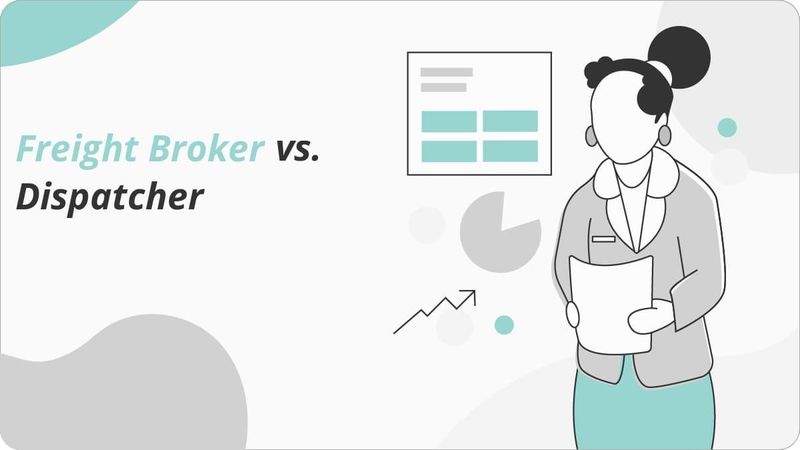
Freight brokers and dispatchers are two very important jobs in the world of logistics and transportation. But how are they different? Let's look at the differences between these jobs and how they are different.
Freight Brokers
What Do Freight Brokers Do?
Freight brokers act as middlemen between companies that need to move goods (called shippers) and companies that move those goods (called carriers). Here's a quick rundown of what they have to do:
- Negotiate Deals: Freight brokers talk to carriers on behalf of shippers about shipping prices and terms. The goal is to find the best deals possible.
- Paperwork Pros: They take care of all the shipping paperwork and make sure that all permits, licences, and rules are followed.
- Keep you in the loop: It's important to talk to each other. Freight brokers keep track of packages in real time and let shippers and carriers know about any changes. This keeps delays and other problems from happening.
- Problem-solvers: When problems come up, like when a shipment is late or damaged, freight brokers step in to find answers and keep things running as smoothly as possible.
Dispatchers
How they do their jobs
Dispatchers are like the directors of a transportation orchestra. They make sure that everything runs smoothly and quickly. The main things they have to do are:
- Plan Routes: Dispatchers figure out the best routes for cars that will use the least amount of gas and take the least amount of time.
- Assign Jobs: They choose which driver gets which load based on the driver's availability, the size of the vehicle, and the limit for delivery.
- Stay in touch: Good conversation is the most important thing. Dispatchers are always in touch with drivers to give them directions, news, and help while they are driving.
- Problem-solvers: It's important for packages to stay on schedule that dispatchers deal with problems on the road, like breakdowns or delays.
What's Different?

Let's take a closer look at the differences between freight brokers and dispatchers:
1. Who is responsible for what?
- Freight Broker help with the whole shipping process, from beginning to end, and often handle more than one package at the same time.
- Dispatchers are in charge of the day-to-day activities of a certain carrier or fleet, like managing routes and making sure shipments go smoothly.
2. Client Interactions
- Freight brokers work with shippers, carriers, and other logistics workers, among other types of clients.
- Dispatchers mostly talk with drivers and other people who work for their transportation company.
3. Knowledge of the Industry
- Freight brokers need to know a lot about the shipping industry, such as market trends and rules.
- Dispatchers are very good at setting up routes, managing drivers, and making sure cars are in good shape.
4. Revenue Model
- Freight Brokers make money by negotiating deals and asking fees or commissions.
- Usually, a dispatcher is a paid worker at a transportation company.
5. Size of the business
- Freight Broker: They can work with businesses of all kinds and handle a wide range of shipments.
- Dispatchers: They usually work for companies that own their own trucks and make sure that their shipments run smoothly.
In conclusion, freight brokers and dispatchers are both important parts of the logistics and transportation business. However, they do different things and have different roles. Even though both are important to the smooth flow of goods, they have different areas of expertise and attention. Understanding these differences can help you see how each role makes a unique addition to the logistics world.




